US President Barack Obama said on Thursday that he has not yet developed a strategy to combat Islamic State (Isis) militants, months after the jihadist army erased the border between Iraq and Syria and more than a week after it beheaded an American citizen.
“We don’t have a strategy yet,” Obama told reporters at the White House, indicating a reluctance to expand his bombing campaign into Syria.
Obama said that he had asked Defense Secretary Chuck Hagel and General Martin Dempsey, the chairman of the Joint Chiefs of Staff, to prepare “a range of options” for confronting Isis. But pushing back against fervent speculation that he is preparing to bomb Isis in Syria, Obama said those military plans will be limited to Iraq.
“Our core priority right now is just to make sure our folks are safe,” Obama said.
Obama’s national security team convened at the White House Thursday afternoon to discuss the contours of a still-inchoate strategy. Administration officials have recently begun describing Isis in apocalyptic and near-hysterical terms, even as they decline to endorse additional military action against it, a discrepancy that has prompted confusion in Washington and beyond.
To the degree Obama’s emerging approach to Isis has a centerpiece, it is enlisting regional allies, particularly Sunni Arab nations, to aid in isolating and attacking Isis. Secretary of State John Kerry will soon leave for the Middle East to continue coalition-building.
Some current and former administration officials, speaking on background, have expressed frustration with Obama for not yet forming a comprehensive approach to Isis, and especially for not attempting to take territory in eastern Syria away from the jihadi group. Others contend that the administration’s options are inherently limited if it seeks not to Americanize yet another Middle Eastern war.
Still others have said they expect Obama’s military operations against Isis to eventually expand in scope, mission and geographic reach. Obama was initially reluctant about the Afghanistan surge, the Libya air war and the arming of Syrian rebels, only to eventually embrace all those options.
Obama gave some indications that he is far from persuaded on attacking Syria, but also that his views have yet to solidify. He portrayed US military action as less significant than Iraqi and regional investment in political reconciliation, a point frequently made last decade by US generals, albeit few who were skeptical of escalation in Iraq.
“The idea that the United States or any outside power would perpetually defeat Isis, I think, is unrealistic,” Obama said.
“We can rout Isis on the ground and keep a lid on things temporarily, but then as soon as we leave, the same problems come back again. We’ve got to make sure Iraqis understand that in the end they are responsible for their own security.”
Yet Obama signaled an openness to “an international coalition providing additional air support” for Iraqi and Kurdish forces that have begun to take some territory away from Isis, a potential expansion of the air war.
Already the 106 US airstrikes in Iraq – now occurring daily, and most recently on Thursday – have expanded in focus from protecting Yazidis atop Mount Sinjar – now an abandoned mission – to protecting Iraqi Kurdistan and pushing Isis back from the critical Mosul Dam, mostly under the broad rubric of protecting US personnel in Iraq.
Additional internationalization of the conflict is likely to be a subject of discussion at next week’s Nato summit in Cardiff, as well as next month’s United Nations session.
About the only option Obama forswore was tacitly or explicitly reversing course and aligning with Syrian dictator Bashar Assad, whom Obama nearly attacked last year, against their common foe.
“Frankly, Assad doesn’t seem to have the capability or reach to get into those areas” where Isis operates, Obama said.
A US official recently observed that Assad’s air defenses now render the skies over eastern Syria relatively permissible, which may reduce the risk US pilots could face should Obama order attacks on Isis in eastern Syria. A US special operations team was able to secretly infiltrate Syria from the air earlier this summer in an unsuccessful mission to free US hostages.
Obama said he would continue “consultations with Congress,” but stopped short of committing to a congressional vote on military action, as some lawmakers desire. He dismissed that as premature, as his strategy has yet to develop.
Last year, Obama’s surprise decision to seek congressional approval for strikes against Assad aroused congressional skepticism, and a vote was forestalled after Russia brokered an unexpected accord to divest Assad of the chemical weapons precursors that had prompted the US to consider strikes.
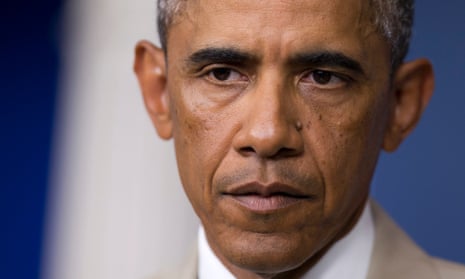
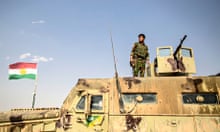

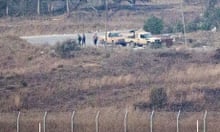
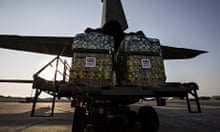


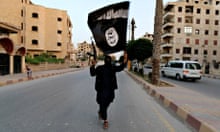
Comments (…)
Sign in or create your Guardian account to join the discussion